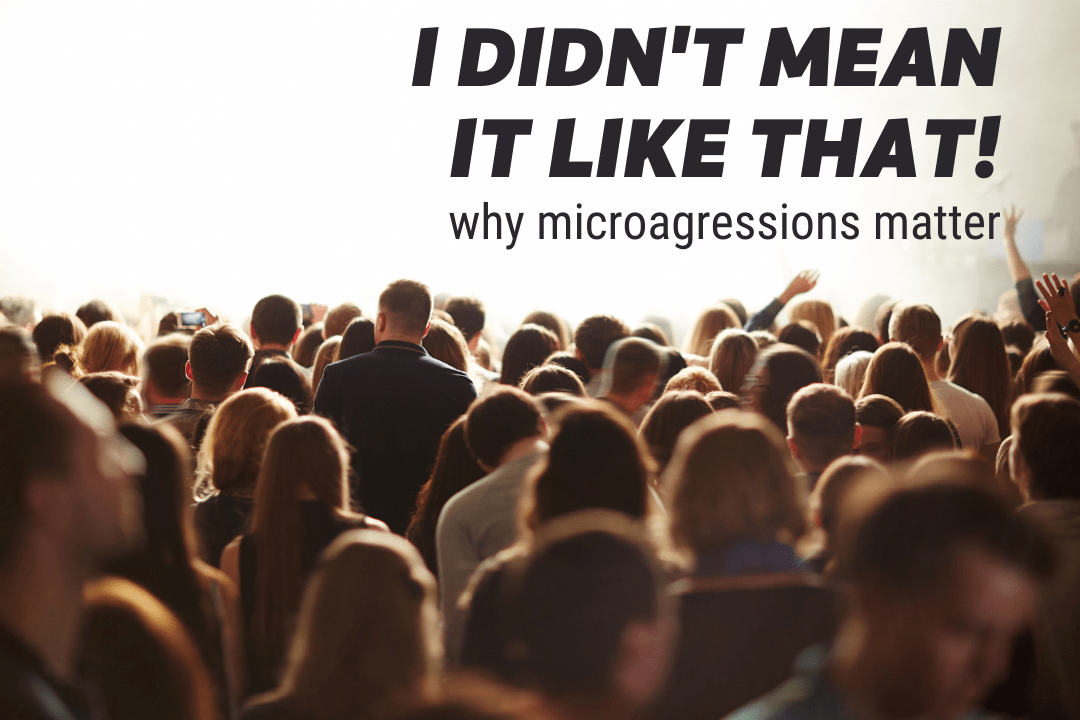
Our community on campus is built to foster a culture of belonging, personal development, and collegiate success. These goals inform the everyday work of our staff and student leaders, influence our resident programming and interactions, and provide a solid foundation for confronting challenges within our communities. One of the greatest hindrances to that goal is the prevalence of microaggressions experienced by students across campus every day.
A microaggression is defined as “a statement, action, or incident regarded as an instance of indirect, subtle, or unintentional discrimination against a marginalized group such as a racial or ethnic minority.” Microaggressions don’t just affect people of marginalized racial or ethnic groups but can often be aimed at a person’s sexual or gender identity, ability, nation of origin, or native language—among many other sources. While plenty of times these are intentionally harmful, it is far more frequent that microaggressions stem from an unconscious bias with no bad intent.
While microaggressions are often presented subtly, the damage from each comment can gradually build into a much larger problem. Tensions will build to a point that even the slightest comments can have a large impact. While performing at the 2017 MAKERS Conference, actress Cynthia Erivo shared how—even when playing a character on stage—the repeated hurtful comments directed at her character started to affect her personally. She briefly shared how, because of this, she now struggles to revisit the music that her character sang. In this case, the discrimination Erivo faced built up to a point where it impacted the way she viewed things and acted in her life. Watch the video to learn more about how these comments weighed on her and the impact of microaggressions.
Everyone reacts to microaggressions differently, so it is important to acknowledge that we are all working through a myriad of experiences. Sometimes discussing the experiences makes us feel like we are going through it again and confronting that pain is challenging. We don’t have to confront these challenges alone; our resident outreach coordinators are here to help familiarize and connect you with all the campus resources that offer support as we move forward. If you’d like to connect with our staff to learn more about these resources, email Shannon Jolley at sjolley@housing.utah.edu. If you’d prefer to explore these resources alone, you can visit this page to find contact information and website links to offices that provide support.
If you wonder or worry that you might be committing microaggressions or want to challenge your own unconscious biases, you can start by visiting our social justice advocates (SJAs) in the Equity Living Room on the first floor of Kahlert Village or the Equity Lounge in the basement of Benchmark Plaza 820. In these spaces, you can sit down with an SJA and chat about your own experiences, reflect, or get connected to other groups on campus. While we can’t press a button to remove our unconscious bias, we can build intentional habits that help us challenge our preconceptions and question our actions and thoughts.
Recent Posts
- How to Navigate Marriott Library April 12, 2024
- Exploring Student leadership: A look into University Life March 25, 2024
- Latte Lounge February 23, 2024
- Student-Friendly Adventures: A Guide to Affordable Fun in Salt Lake City February 2, 2024
- Dining on Campus January 19, 2024
